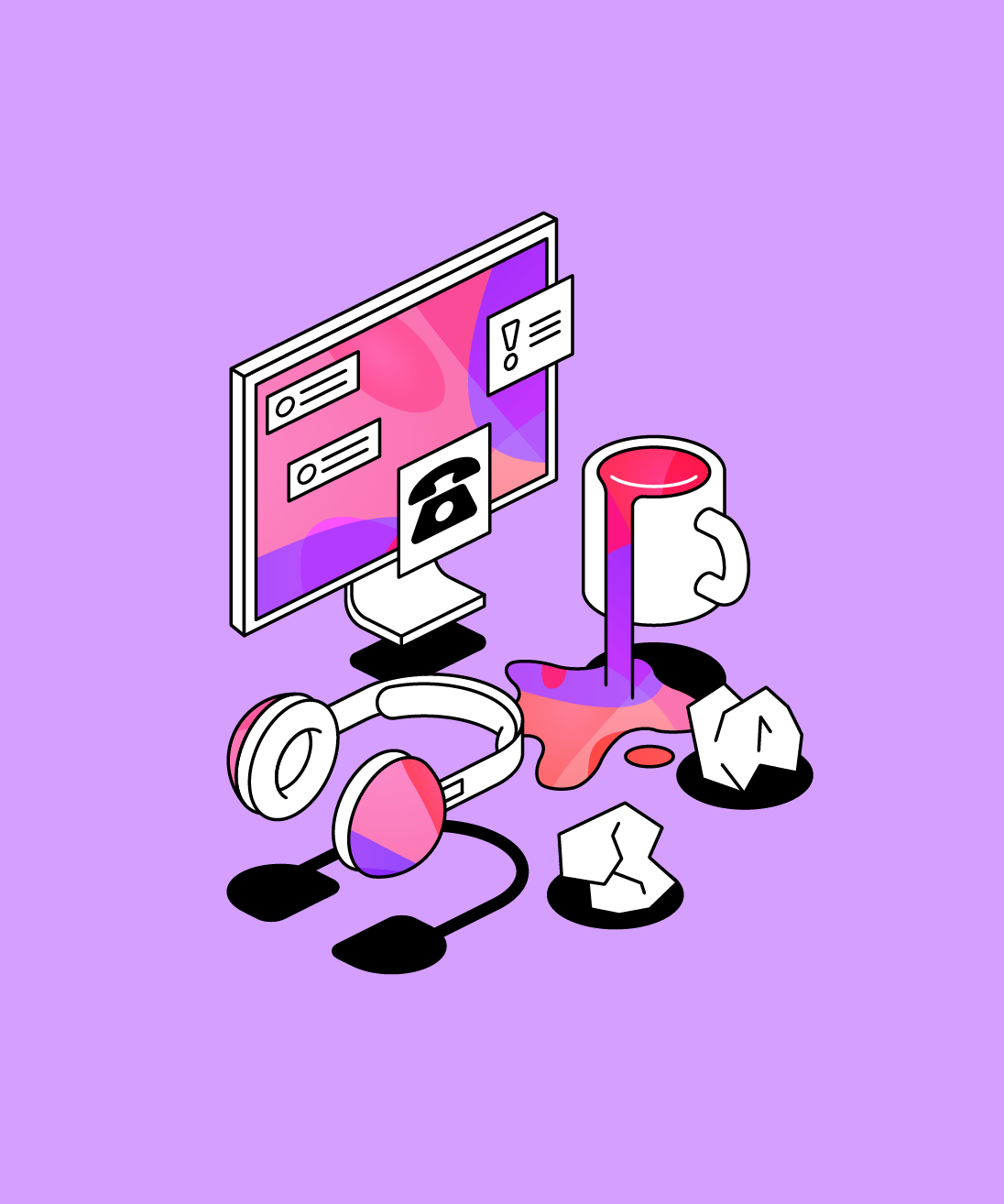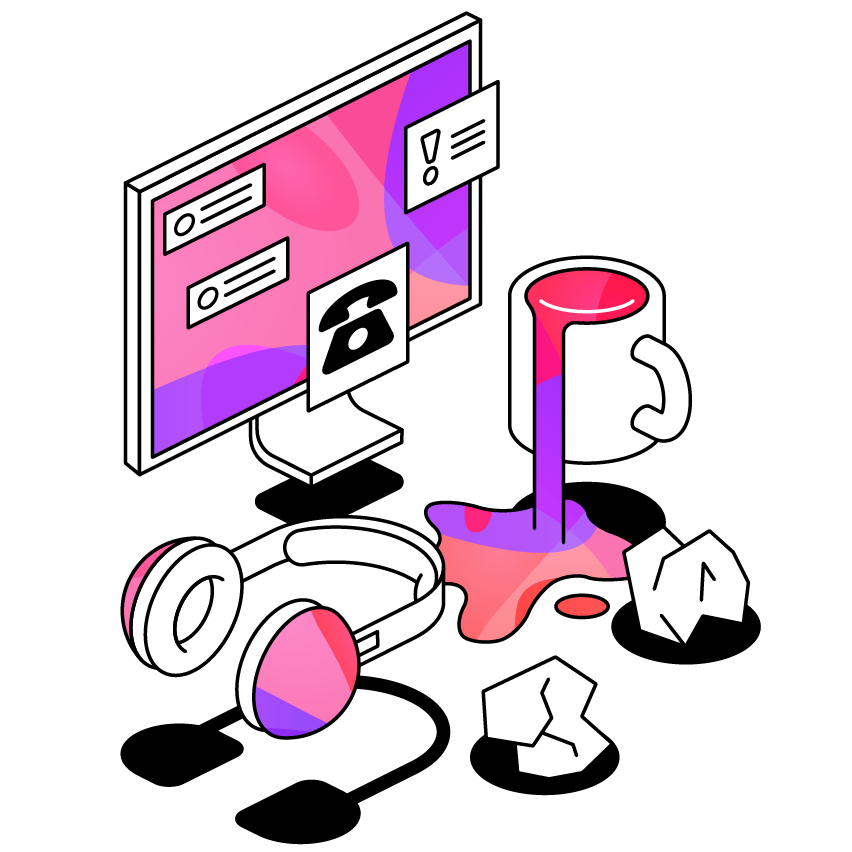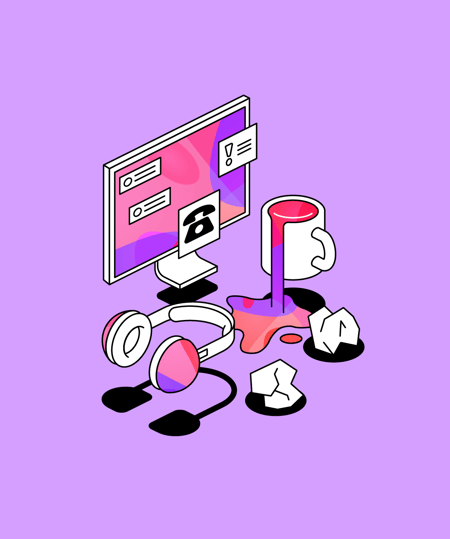Navigating AI in higher education: A panel discussion
This article recaps our insightful Q&A with James Moore, Marlies Gration, Denise Henry and Clara M. Fleites. We explore how institutions are currently using AI, trends they're seeing and how we can address some of the challenges surrounding AI integration at higher education.
 5 min read
5 min read
 Published: 30 Jul 2025
Published: 30 Jul 2025
 Phoebe Hoar
Phoebe Hoar


In a recent webinar, Navigating AI in Higher Education, hosted by Sarah Hardy and Josh Nesbitt from Genio, a panel of experts convened to explore the transformative impact of AI in educational settings. This session built upon the previous webinar, by delving deeper into real-world experiences and perspectives on AI's integration into academia. The panellists included:
- James Moore: Director of Online Learning for the DePaul College of Business at DePaul University in Chicago, who also teaches AI classes.
- Marlies Gration: Head of learning content for the University of Nottingham's online department.
- Denise Henry: Director for the Centre of Teaching and Learning at CSU Pueblo, with 25 years of experience in education.
- Clara M. Fleites: Assistive technology specialist at Florida Atlantic University
The discussion explored several key themes, with insights from each panellist contributing to a comprehensive understanding of AI's current and future role in higher education. So, let’s take a dive into some of the Q&A’s.
Where is AI already making an impact in your institution?
James Moore: "We're seeing it in preparation for employment. The job market at the moment has paused to a certain degree in North America. So where graduates could typically expect that they would get hired quickly, that's no longer the case. So, it takes longer to get that job unless you have proven AI and machine learning experience."
Marlies Gration: "We see it through the learners eyes. We noticed that a lot of students are already using AI tools for their learning processes" She also noted, "What I'm actually witnessing is that they're using it to scaffold their learning. They're doing their own little quizzes. They're thinking about how it can help them draft pieces of text."
Clara M. Fleites: "I haven't only seen it just from the students, as the instructors are using it to kind of make the classes and also show by example to the student how to ethically use those tools and even integrate part of the assignments to show the students how to better integrate them for themselves and not just use as a crutch."
Denise Henry: "I'm seeing a wide range of interest, acceptance and rejection of the tools." She continued, "This feels like the biggest disruption in higher ed teaching that faculty have experienced." Denise explained, "It feels like a disruption that is challenging core beliefs and ways of being and what it means to know something, and what it means to be skilled at something." She also observed, "Students are fearful. In a lot of cases, they don't want to get in trouble.”
Where do you think educators are getting stuck in the AI process? Where are the biggest friction points in adoption?
James Moore: "I think one of the problems we have is terminology. AI is an umbrella term that covers a multitude of science technologies, but what we’re currently talking about is really generative AI." He also stated, "I think higher education leadership is not quite prepared for this. So teachers, educators, I think, are typically in a better place, but we don't have a uniform view to sort of bring people together to think about how to do this strategically."
Denise Henry: "This may be a catalyst to institutional change." She questioned, "What is the role of higher education jobs when you can get a lecture personalised to you and actually have a back and forth verbal conversation about the content in notebook LM." She added, "I see this as just a tremendous opportunity for us to re-examine the way that we think about learning and gaining knowledge, and what it means to know something or to have expertise."
Clara M. Fleites: "I was going to talk more about the accessibility community. Unfortunately, AI hasn't been too kind to this group, it's been a very slow progress, to say the least." She stated, "I often try to find AI tools but when I test it, it just isn't compatible with the community, for example Notebook LM, I know many will check out during a long podcast.”
How can higher education institutions address the challenges of bias, data privacy, and faculty resistance, while effectively integrating AI technologies to enhance student learning?
James Moore: "Go into an image creation tool of your choice and say create an image of the average American teenager or the average British teenager, and you might see that that first image looks as if it represents a typical teenager. Then ask to make that more American or more British, and again, and you'll start to see the biases." He added, "All of these systems are biased. Some of them are designed in such a way for those biases to be less dangerous, less harmful, but inherently that bias is there and it's going to surface in interesting ways."
Marlies Gration: "One activity we do for our academics actually is trying to get ChatGPT, Gemini or Co-Pilot to disagree with you, which is really hard because it has an inbuilt confirmation bias, right?" She also stated, "I actually want people to be thinking about using the language model in its own right, because in future I think we will, if we want to adopt AI in a more meaningful way and in a way that we own our data and where we have more control over it.”
Clara M. Fleites: "We have to remember where these tools were born. Humans put in the data, put in the thought, put in the information, and they just regurgitate it and move it around as the prompt. So when we think about bias, we also have to think, not just blame the machine for giving us something completely wrong or completely bad in our own point of view."
What will be the role of faculty in this new AI environment?
James Moore: "I think the role of faculty going forward is to demonstrate transparency to the student and to be as human as possible. How we achieve that is going to be individual. But that's the thing that we need to demonstrate going forward."
Marlies Gration: "I see it more as a knowledge map. And in order to navigate that knowledge map, you need a guide or a coach or someone next to you that helps you navigate that and helps you. Who knows the terrain better than you do."
Clara M. Fleites: "I think instructors should show by example. Show student that this is how you can use them, this is the best practice. We tell the student, write your paper here in class and then feed that to Chat GPT to help you fix it, and then compare both rather than just taking what the AI is giving you."
Denise Henry: "I work at a school because I want to work at school. I like learning. I think education is what makes our world a better place and improves lives. And we can't be the morality police.” She concluded, "Shifting our culture around learning and why we're here and what our roles are and our focus kind of helps."
What's one strategic move every institution should prioritize this academic year regarding AI?
James Moore: "I'll tell you what we're doing. It's for everyone in our college. All staff, all faculty, all students complete an AI literacy course. So everyone at least is able to talk about things with a common foundation."
Marlies Gration: "I would say, really focus on one area that you as an organization want to nail in terms of AI operations. I think for our organisation that's been assessments."
Clara M. Fleites: "I think rather than just training the instructor, also give room for them to try it out, for them to experiment with it."
Denise Henry: "I think institutionally, we could help faculty or we can help build a culture where we're not here to be cops." She concluded, "Once we have that culture of, hey, we're here to learn. We're all learning together. We're growing together. All these other things just can kind of naturally come in or flow away."
The insights shared by James, Marlies, Denise, and Clara underscore the multifaceted nature of AI integration in higher education. Their contributions highlight the importance of balancing innovation with ethical considerations, fostering a supportive learning environment, and adapting pedagogical approaches to leverage AI effectively.
As Josh Nesbitt aptly summarized, "The discourse needs to change, and we need to support each other as a community on how we make these tools effective. That means being curious, it means exploring these things and sharing our learnings."
This panel served as a valuable step in that collective learning journey, offering practical advice and thought-provoking perspectives for institutions navigating the evolving landscape of AI.
More from Supporting Students
View All
 2 min read
2 min read
How AI note taking tools can bridge learning gaps for STEM students with disabilities
Here, we explore how AI powered note taking tools act as a critical scaffold for STEM students with disabilities, helping with active conceptual engagement. This post breaks down how live transcripts and AI-generated retrieval practice. like quizzes, empower students to navigate technical subjects with full academic independence.

 3 min read
3 min read
How Genio Present can help students become more confident speakers
Students with anxiety or Specific Learning Differences can struggle to participate in oral assessments confidently and equitably. Learn how Genio Present helps students overcome public speaking anxiety, transforming nervousness into confidence and improving academic performance through innovative rehearsal techniques based on learning science.

 5 min read
5 min read
6 accessible learning apps for college students in 2026
Selecting tools that bridge accessibility and independence can be a transformative step in a student’s academic journey, fostering skills that last long after graduation. Here, we explore 2026’s top accessible learning apps, which empower students by automating unproductive barriers while preserving the deep, active engagement essential for true learning.





